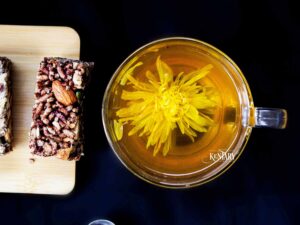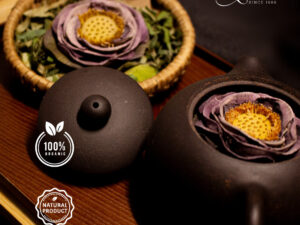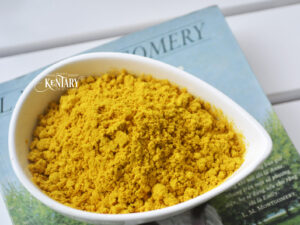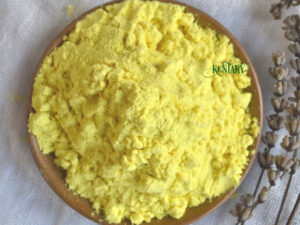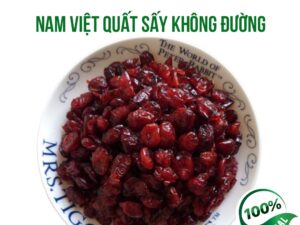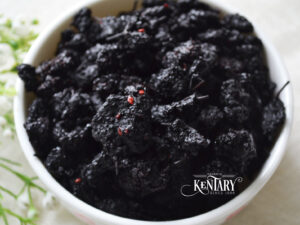Studies suggest that some foods can help decrease chronic inflammation. These include olive oil, as well as certain berries and fruit, vegetables, spices, and fish… in more detail we will se 12 of the most anti inflammatory foods you can eat below for help you more confident at home.
Simply put, inflammation is the body’s protective response to injury or infection.
So isn’t inflammation a good thing? Well, yes…and no.
When we incur an acute injury like a cut, our body sends immune helper cells to the site of the injury where it induces acute inflammation. Consequently, this helps begin the healing process of that wound. This process is completely normal and is often termed “innate immunity.” In other words, this is the normal acute inflammatory response which IS what we want!
However, when it comes to chronic inflammation, that IS NOT what we want.
Chronic inflammation is triggered by an ongoing stimulus in which the immune helper cells try to do their job of healing. However, this constant stimulation creates MORE cell recruitment, inflammation, and unwanted changes in our cells.
On one hand, it helps your body defend itself from infection and injury. On the other hand, chronic inflammation can lead to disease
Stress, low activity levels, and foods that cause inflammation can make this risk even greater. For this reason, eating foods that can help reduce inflammation is strongly advisable.
Here are 12 anti inflammatory foods you can choose.

1. Berries with inflammatory
Berries are small fruits that are packed with fiber, vitamins, and minerals.
Dozens of varieties exist. Some of the most common ones include:
- strawberries
- blueberries
- raspberries
- blackberries
Berries contain antioxidants called anthocyanins. These compounds have anti-inflammatory effects that may reduce your risk of disease
In one study including 25 adults, those who consumed blueberry powder every day produced significantly more natural killer cells (NK cells) than those who did not consume the powder. These findings were similar to those of an older study. (Scouce)
Your body naturally produces NK cells, and they help keep your immune system functioning properly.
In another study, adults with excess weight who ate strawberries had lower levels of certain inflammatory markers associated with heart disease than those who didn’t eat strawberries.
Further, anthocyanins reduce inflammation through inhibiting nuclear factor-kappaB activation and increasing the PPAR-γ gene.
A 2019 study published in the American Journal of Clinical Nutrition showed that eating 1 cup (150g) of blueberries daily reduced the risk of cardiovascular disease by up to 15%!
Additionally, other benefits associated with berry consumption include a reduction in cancer risk, cognitive decline, dementia, heart disease, blood sugar, and cholesterol.
Berry Tips:
- Include fresh and frozen berries into your diet to maximize intake
- Purchase produce in season for optimal nutritional value
- Wash berries just before serving to retain freshness
2. How fatty fish help anti inflammatory

Fatty fish are a great source of protein and the long-chain omega-3 fatty acids eicosapentaenoic acid (EPA) and docosahexaenoic acid (DHA).
Although all types of fish contain some omega-3 fatty acids, these fatty fish are among the best sources:
- salmon
- sardines
- herring
- mackerel
- anchovies
EPA and DHA help reduce inflammation, which may otherwise lead to metabolic syndrome, heart disease, diabetes, and kidney disease .
Your body metabolizes these fatty acids into compounds called resolvins and protectins, which have anti-inflammatory effects .
Studies have found that people consuming salmon or EPA and DHA supplements experienced reductions in the inflammatory marker C-reactive protein (CRP) .
However, in one study, people with an irregular heartbeat who took EPA and DHA daily experienced no difference in inflammatory markers compared with those who received a placebo .
3. You can eat broccoli for anti inflammatory
Broccoli is extremely nutritious.
It’s a cruciferous vegetable, along with cauliflower, Brussels sprouts, and kale.
Research has shown that eating a lot of cruciferous vegetables is associated with a decreased risk of heart disease and cancer (18Trusted Source, 19Trusted Source).
This may be related to the anti-inflammatory effects of the antioxidants they contain.
Broccoli is rich in sulforaphane, an antioxidant that decreases inflammation by reducing your levels of cytokines and nuclear factor kappa B (NF-κB), which are molecules that drive inflammation in your body .
4. Avocados

Avocados are packed with potassium, magnesium, fiber, and heart-healthy monounsaturated fats .
They also contain carotenoids and tocopherols, which are linked to a reduced risk of cancer .
In addition, one compound in avocados may reduce inflammation in newly forming skin cells .
In one high quality study including 51 adults with excess weight, those who ate avocado for 12 weeks had a reduction of inflammatory markers interleukin 1 beta (IL-1β) and CRP .
Here are a few great ways you can add avocado into your diet!
- Use as a spread or a mayonnaise substitute on a sandwich
- Create a delicious guacamole dip for crackers or veggie sticks
- Add sliced avocado on top of a healthy egg omelet or scramble
- Enjoy as a decadent avocado mousse dessert
5. Green tea good for anti cancer and inflammatory

You’ve probably heard that green tea is one of the healthiest beverages you can drink.
Research has found that drinking it is associated with a reduced risk of heart disease, cancer, Alzheimer’s disease, obesity, and other conditions .
Many of its benefits are due to its antioxidant and anti-inflammatory properties, especially a substance called epigallocatechin-3-gallate (EGCG).
EGCG inhibits inflammation by reducing pro-inflammatory cytokine production and damage to the fatty acids in your cells.
Green tea contains antioxidant compounds called catechins. EGCG (Epigallocatechin-3-gallate) is the major and most active component.
EGCG reduces inflammation by decreasing pro-inflammatory cytokines and oxidative stress caused by free radicals.
Green Tea Tip!
- To optimize health benefits, brew tea at lower temperatures, between 160-180 degrees F and then steep for 1-4 minutes (Note: Boiling water is 212 degrees F).
- Above all, steeping green tea at too high of a temperate or for too long can produce an unwanted bitter taste.
- Want to up your antioxidant intake even more?! Try matcha powder! Matcha powder is created by grinding green tea leaves into powder. Consumption of the entire leaf itself results in more potent effects, consequently making this a powerhouse anti-inflammatory food.
6. Peppers
Bell peppers and chili peppers are loaded with vitamin C and antioxidants that have powerful anti-inflammatory effects (36Trusted Source, 37Trusted Source, 38Trusted Source, 39Trusted Source).
Bell peppers also provide the antioxidant quercetin, which may reduce inflammation associated with chronic diseases, like diabetes .
Chili peppers contain sinapic acid and ferulic acid, which may reduce inflammation and support healthier aging.
7. Mushrooms are very good in anti inflammatory
While thousands of varieties of mushrooms exist worldwide, only a few are edible and grown commercially.
These include truffles, portobello mushrooms, and shiitake mushrooms.
Mushrooms are very low in calories and rich in selenium, copper, and all of the B vitamins.
They also contain phenols and other antioxidants that provide anti inflammatory protection.
A special type of mushroom called lion’s mane may potentially reduce low grade inflammation related to obesity.
However, one study found that cooking mushrooms lowered their anti inflammatory compounds significantly. Thus, it may be best to eat them raw or lightly cooked .
8. Grapes are foods you can eat when you get inflammatory

Grapes contain anthocyanins, which reduce inflammation.
In addition, they may decrease the risk of several diseases, including heart disease, diabetes, obesity, Alzheimer’s, and eye disorders.
Grapes are also one of the best sources of resveratrol, another antioxidant compound that has many health benefits.
Studies show that resveratrol can protect the heart against inflammation.
In one study including 60 people with heart failure, those who consumed two 50-mg capsules of resveratrol daily for 3 months experienced a decrease in inflammatory gene markers, including interleukin 6 (IL-6).
An older study from 2012 found that adults who ate grape extract daily experienced increased levels of adiponectin. Low levels of this hormone are associated with weight gain and an increased risk of cancer.
9. Supper food turmeric with anti inflammatory
Turmeric is a spice with a warm, earthy flavor that’s often used in curries and other Indian dishes.
It has received a lot of attention because it contains curcumin, a powerful anti-inflammatory compound.
Research has shown that turmeric reduces inflammation related to arthritis, diabetes, and other diseases .
In one study, people with metabolic syndrome consumed 1 gram of curcumin daily combined with piperine from black pepper. They experienced a significant decrease in the inflammatory marker CRP.
It may be hard to get enough curcumin from turmeric alone to experience a noticeable effect. Taking supplements containing isolated curcumin may be much more effective.
Curcumin supplements are often combined with piperine, which can boost curcumin absorption by 2,000% .
More research is needed to understand how the dosage of turmeric affects inflammatory markers.

10. Extra virgin olive oil
Extra virgin olive oil is one of the healthiest fats you can eat.
It’s rich in monounsaturated fats and a staple in the Mediterranean diet, which provides numerous health benefits.
Studies link extra virgin olive oil to a reduced risk of heart disease, brain cancer, and other serious health conditions .
In one study on the Mediterranean diet, CRP and several other inflammatory markers significantly decreased in those who consumed 1.7 ounces (50 mL) of olive oil every day for 12 months.
The effect of oleocanthal, an antioxidant found in olive oil, has been compared to anti-inflammatory drugs like ibuprofen.
Keep in mind that extra virgin olive oil has greater anti-inflammatory benefits than refined olive oils do.
11. Dark chocolate and cocoa

Dark chocolate is delicious, rich, and satisfying.
It’s also packed with antioxidants that help reduce inflammation. These may reduce your risk of disease and lead to healthier aging.
Flavanols are responsible for chocolate’s anti-inflammatory effects and help keep the endothelial cells that line your arteries healthy.
In one small study, people who consumed 350 mg of cocoa flavanols twice daily experienced improved vascular function after 2 weeks.
However, more high quality studies on chocolate and its components are needed.
In the meantime, it can’t hurt to choose dark chocolate that contains at least 70% cocoa — a greater percentage is even better — to reap these anti-inflammatory benefits
12. Tomatoes is the best foods you can eat

The tomato is a nutritional powerhouse.
Tomatoes are high in vitamin C, potassium, and lycopene, an antioxidant with impressive anti inflammatory properties .
Lycopene may be particularly beneficial for reducing pro-inflammatory compounds related to several types of cancer .
Note that cooking tomatoes in olive oil can help you absorb more of their lycopene content.
That’s because lycopene is a carotenoid, a nutrient that’s better absorbed with a source of fat.
Even low levels of inflammation on a chronic basis can lead to disease with 12 of the most anti inflammatory foods you can eat above Kentary hope you can protect your health better.
Do your best to keep inflammation in check by choosing a wide variety of delicious, antioxidant-rich foods.
Peppers, dark chocolate, fish, and extra virgin olive oil are just a few foods that can help you lower inflammation and reduce your risk of illness.
To provide nutrition knowledge and food sources to help prevent the exacerbation of chronic disease as well as enhance overall wellness through evidence-based guidance on anti inflammatory foods.
Source: healthline, parentishealth
READ MORE
KEEP INFLAMMATION IN CHECK BY CHOOSING THESE 8 ANTIOXIDANT-RICH FOODS
5 MOST DELICIOUS WAYS TO GET MORE VEGGIES INTO YOUR DIET
TOP15 BEST FOODS FOR HIGH BLOOD PRESSURE
-
 BLOOMING PUERH TEAVND165,000 – VND300,000
BLOOMING PUERH TEAVND165,000 – VND300,000 -
 DONG THAP PINK LOTUS TEAVND175,000 – VND275,000
DONG THAP PINK LOTUS TEAVND175,000 – VND275,000 -
 CURCUMIN RICH TURMERIC EXTRACT POWDERVND200,000 – VND700,000
CURCUMIN RICH TURMERIC EXTRACT POWDERVND200,000 – VND700,000 -
 TURMERIC EXTRACT POWDERVND140,000 – VND500,000
TURMERIC EXTRACT POWDERVND140,000 – VND500,000 -
 SUGAR FREE SOFT DRIED FIVE COLOR GRAPEVND95,000 – VND300,000
SUGAR FREE SOFT DRIED FIVE COLOR GRAPEVND95,000 – VND300,000 -
 SUGAR FREE SOFT DRIED CRANBERRYVND115,000 – VND395,000
SUGAR FREE SOFT DRIED CRANBERRYVND115,000 – VND395,000 -
 FREEZE DRIED STRAWBERRYVND80,000 – VND300,000
FREEZE DRIED STRAWBERRYVND80,000 – VND300,000 -
 SOFT DRIED STRAWBERRY WITH LOW TEMPERATUREVND140,000 – VND545,000
SOFT DRIED STRAWBERRY WITH LOW TEMPERATUREVND140,000 – VND545,000 -
Product on sale
 Soft-dried MulberryVND47,500 – VND160,000
Soft-dried MulberryVND47,500 – VND160,000 -
 Soft-dried Cherry TomatoVND80,000 – VND265,000
Soft-dried Cherry TomatoVND80,000 – VND265,000

